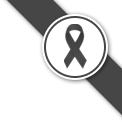News
Walailak Center of Excellence for Ecoinformatics Organizes Workshop for Teachers Integrating Sufficiency Economy Philosophy into Classroom

Walailak University, led by the Center of Excellence for Ecoinformatics, recently hosted a workshop for teachers from the Southeast Asian Ministers of Education Organization (SEAMEO) member countries, aiming to integrate Sufficiency Economy Philosophy (SEP) into the classroom for students in grades seven to ten.
This workshop, titled “SEP and SDG in the Classroom: A Pilot Study on the Application of SEP in Teaching and Learning of Health and Environment Science among Grades 7-10, or ages 12-15 pupils in SEAMEO Member Countries” took place online via Google Meet from 18 – 21 March, 2024.
The event was welcomed by Associate Professor Dr. Surin Maisrikod, Vice President of Walailak Univeristy, followed by opening remarks by Ms. Duriya Amatavivat, Director of the Southeast Asian Ministers of Education Organization Regional Center for Sufficiency Economy Philosophy for Sustainability (SEAMEO SEPS).
Participating countries included Brunei Darussalam, Malaysia, Myanmar, the Philippines, Thailand, Timor Leste, and Laos.
Associate Professor Dr. Krisanadej Jaroensutasinee, Head of the Center and Project, highlighted that this workshop was a result of a Memorandum of Understanding signed between Walailak University and SEAMEO SEPS.
“We were tasked with designing experiments, creating 16 modules for integration into the classroom and developing pretests and posttests,” he said.
One module with significant societal impact, aligning with the United Nations’ Sustainable Development Goals (SDGs), is on "Food Heroes". Within this module, students learn about methods to reduce food waste, adopt sustainable eating habits, and understand the collective influence individuals possess in addressing global food issues and advancing the SDGs.
“We then evaluate students' knowledge, skills, attitudes, and values after one semester of implementing the sufficiency economy philosophy to measure whether students have embraced moderation and the middle path in their lives.”
By applying the knowledge from the Food Heroes Module, students can create significant impacts across four major dimensions: economy, environment, society, and culture. This includes enhancing resource conservation, increasing food security and reducing hunger, reducing greenhouse gas emissions, promoting health and well-being, and preserving culinary traditions and heritage.
In the 2023 assessment by the Times Higher Education Impact Rankings, Walailak University was ranked between 401-600 worldwide and joint 8th in Thailand. The university excelled in four SDGs: Zero Hunger, Clean Water and Sanitation, Sustainable Cities and Communities, and Life Below Water, among the world’s top 100.




News





